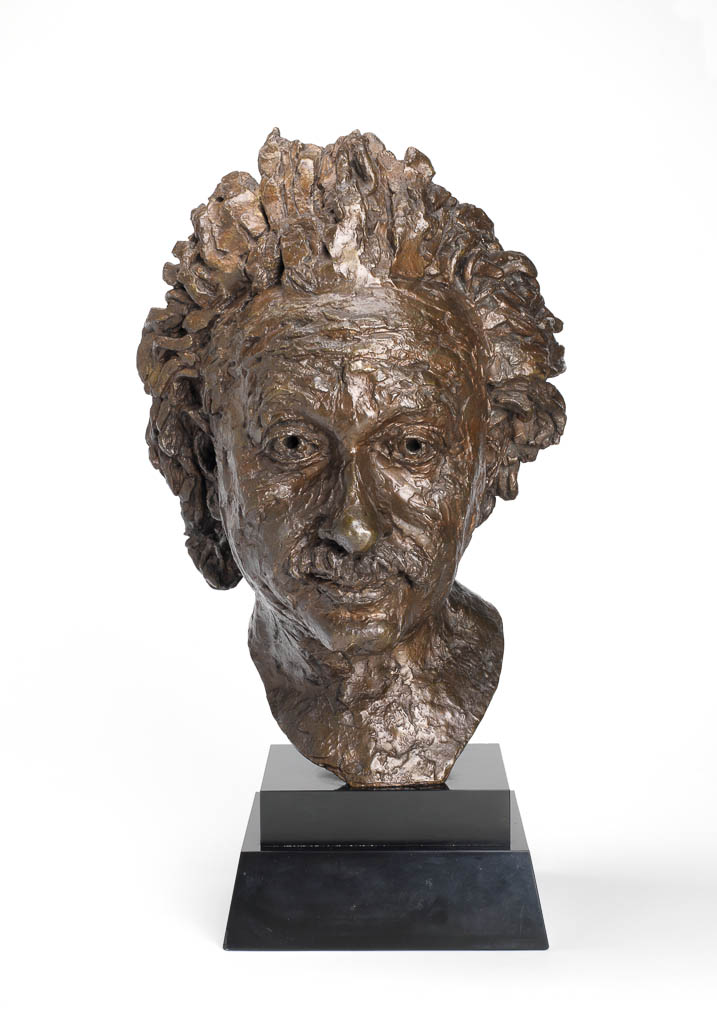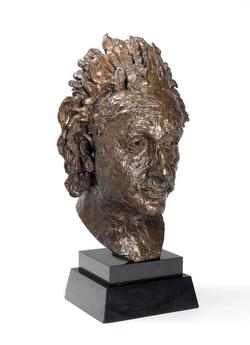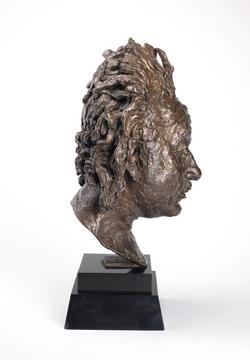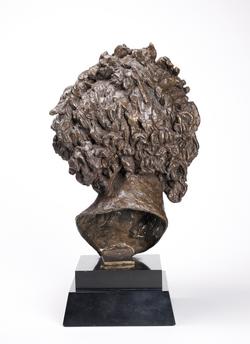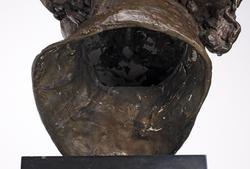Current Location: In storage
Titles
Albert Einstein (1879-1955)
Maker(s)
Sculptor:
Epstein, Jacob
Entities
Categories
Description
Slightly over life-size, facing slightly right, head inclined a little forward. Bare-headed; hair is represented standing on end in an unruly way; moustache. Unfinished.
Notes
History note: Bought from Messrs. A.Tooth & Sons, London by the donor
Legal notes
Given by Lady Jeans
Acquisition and important dates
Method of acquisition: Given
(1933-12)
by
Jeans, Charlotte Tiffany, Lady
Dating
1930s
20th Century, second quarter
George V
Production date:
AD 1933
Note
A total of six casts made - see letter in object's file from Epstein, (dated 15 July 1934). The other five are in: Tate, Science Museum (signed), Walker Art Gallery, Liverpool, Public Art Gallery, Huddersfield, Hebrew University, Jerusalem.
Albert Einstein (1879-1955), the brilliant theoretical physicist and Nobel Prize winner was staying at an army camp near Cromer, Norfolk, as a refugee, when he sat for this portrait in September 1933. This six hour modeling session took place in rather extraordinary surroundings - a room almost filled by a grand piano in a beach hut at Roughton Heath, near Cromer. Einstein was the guest of the journalist and MP, Commander Locker-Lampson, who had persuaded him to come to England from Belgium, where he had been living since Hitler came to power in Germany. Epstein stayed at the Royal Cromer Hotel, and for three days went to the hut for a two-hour sitting. Einstein smoked a pipe, and after the sitting played the piano or the violin. Epstein was immediately attracted to his sitter, who had flying hair, casual dress, and a glance which he described as humane, humorous and profound.
Although the portrait was modeled in just six hours and left incomplete, it is considered an excellent likeness, having captured Einstein’s humane, humorous and profound glance, and his ‘wild hair floating in the wind’. Epstein’s rugged execution gives it an informality which was equally characteristic of the sitter. Its rich impasto modeling recalls the work of Rembrandt, perhaps deliberately since Epstein believed that Einstein ‘resembled the ageing Rembrandt’.
See a letter in the object's file from Lady Jeans regarding its excellent likeness.
People, subjects and objects depicted
Project
Components of the work
Base
Diameter 18.7 cm
Height 10.2 cm
Width 21 cm
Head
Diameter 23 cm
Height 44.5 cm
Width 28.5 cm
Materials used in production
Bronze
Techniques used in production
Casting (process)
: Bronze, cast
References and bibliographic entries
Related exhibitions
Identification numbers
Accession number: M.7-1933
Primary reference Number: 12317
External ID: CAM_CCF_M_7_1933
Stable URI
Audit data
Created: Saturday 6 August 2011
Updated: Monday 25 November 2024
Last processed: Tuesday 13 May 2025
Associated departments & institutions
Owner or interested party:
The Fitzwilliam Museum
Associated department:
Applied Arts
